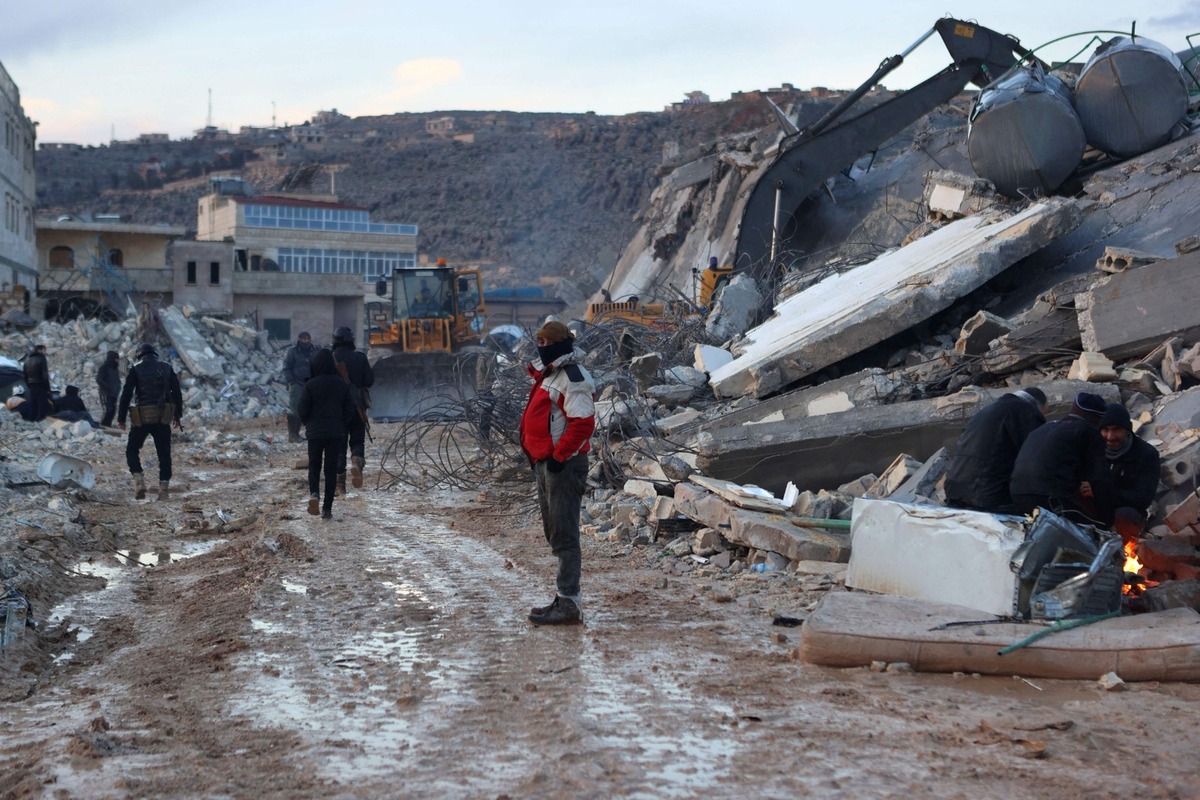Kahramanmaraş - (AFP) - A violent 7.8-magnitude earthquake struck large areas of Turkey and parts of Syria on February 6, killing more than 50,000 people in the two countries.
The World Health Organization said it was the "worst natural disaster" in the European region in a century.
A month after the disaster, Turkey faces the daunting task of rebuilding devastated cities where tens of thousands of people are buried, and many survivors live in tents or containers.
Turkish Interior Minister Suleiman Soylu said Saturday that the death toll from the earthquake has risen to 45,968, in addition to 4,267 Syrian refugees who fled the civil war in their country. Thousands more have died in Syria.
The earthquake struck 11 Turkish provinces at 04:17 local time, while residents were sleeping in houses not built to withstand strong tremors.
Turkish officials said that 214,000 buildings collapsed after the quake, many of them in Hatay and Kahramanmaraş.
Teams of workers are still clearing rubble in the quake-stricken cities.
About 14 million people, or one-sixth of the country's population, were affected by the disaster.
President Recep Tayyip Erdogan said 3.3 million people had so far been forced to leave the quake zone. More than 1.4 million people are currently staying in tents and about 46,000 in containers, while the rest have settled in dormitories and guesthouses, according to official figures.
There was growing frustration with the government's handling of the disaster. But Erdogan blamed the harsh winter weather, which covered main roads with ice and snow, damaged a number of roads and stopped operating airports.
In some provinces, including Adiyaman, anger against the government remains high. Survivors told AFP they were left to rescue loved ones trapped under the rubble with their bare hands as there were no rescue teams, soldiers or police for days after the quake.
Some of the survivors recounted that they witnessed the death of their relatives because they were unable to pull them out from under the rubble due to the lack of equipment needed to excavate between the concrete blocks.
Erdogan acknowledged his "shortcomings" and apologized to residents after criticism of his government's handling of the disaster.
"It is not possible for us to be prepared for a similar disaster," he said during a visit to the quake zone.
Media and opposition politicians blamed government institutions, including the disaster management agency, for their slow response.
Likewise, the Red Crescent Society and its president, Karim Qanq, have been criticized for selling tents to earthquake survivors instead of donating them.
So far, no government official has claimed responsibility for the response, and no one has resigned.
Building developers and contractors were blamed for using poor quality materials or not respecting standards, which led to the collapse of a large number of buildings.
The authorities detained more than 200 people, including construction contractors, as part of a wider investigation. Turkish media showed some of the contractors being held at Istanbul airport as they tried to flee the country.
Turkey, which is suffering from severe inflation and a depreciation of the currency, must absorb the economic damage of the earthquake, which the World Bank estimated at more than $34 billion.
This amount is equivalent to four percent of the country's gross domestic product for the year 2021, and does not include the cost of reconstruction, which may reach "twice" the amount, as indicated by the World Bank.
With elections scheduled for May approaching, Erdogan has pledged to provide new housing for the millions of affected people within a year.
The Turkish president relied on the construction sector in the country during his two decades of rule, boasting of a modernization campaign that built roads, bridges and tunnels.
According to the European Bank for Reconstruction and Development, post-earthquake reconstruction efforts may produce economic gains.
"Increasing production from reconstruction activities may largely offset the negative impact of the disruption of economic activity," the bank said.
Erdogan said this week that the legislative and presidential elections will be held as scheduled on May 14, despite the earthquake.
Last month, the president declared a three-month state of emergency in the quake zone, prompting speculation that the elections might be postponed. It remains unclear how the displaced will be able to cast their ballots.
And it seems that these elections will be the most sensitive for Erdogan, who has been in power, first as prime minister and then as president, since 2003.
The earthquake delayed the opposition coalition's announcement of a candidate, which is expected to happen on Monday. The most likely candidate is Kemal Kilicdaroglu, leader of the opposition Republican People's Party.
But his candidacy was strongly opposed by the leader of the Nationalist Party in the coalition.







Share your opinion
Losses and repercussions of the Turkey earthquake